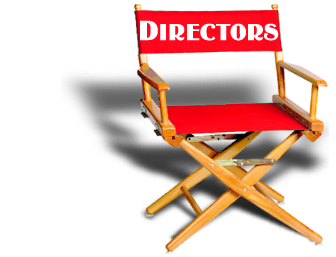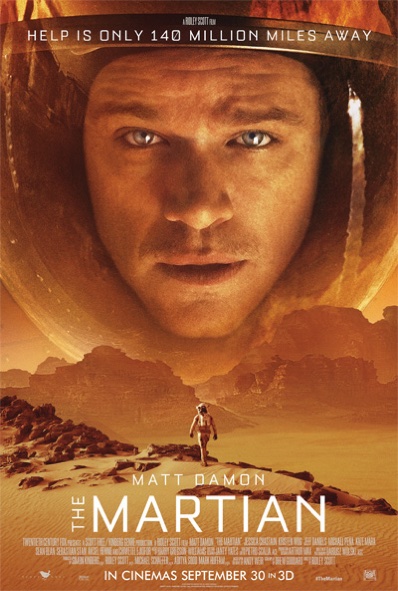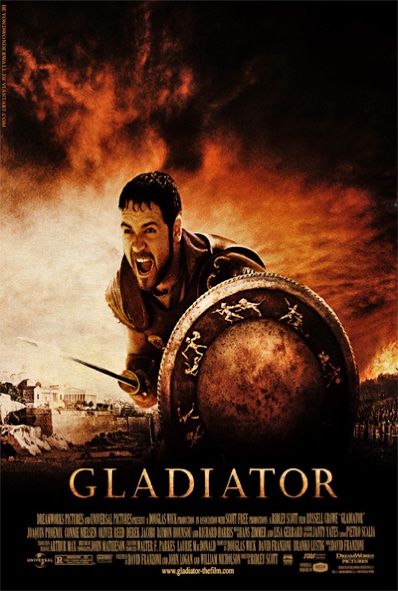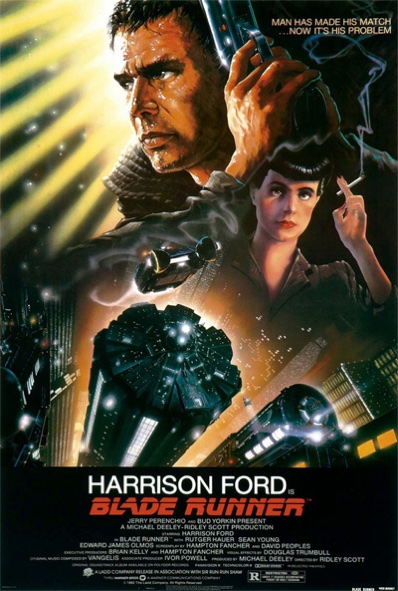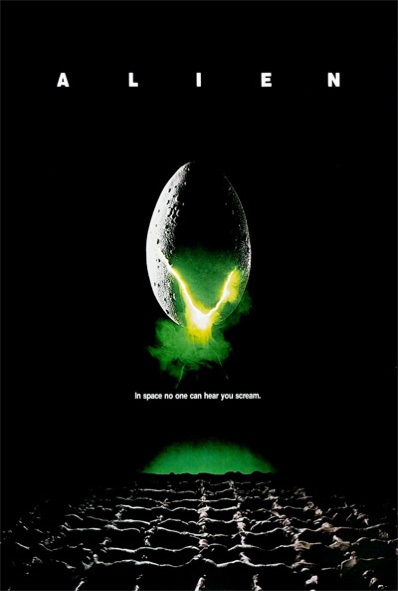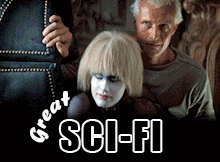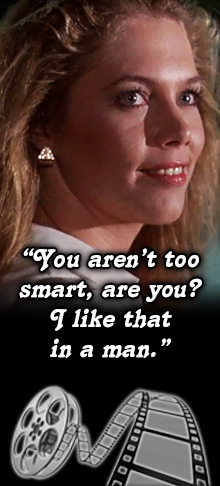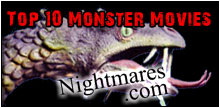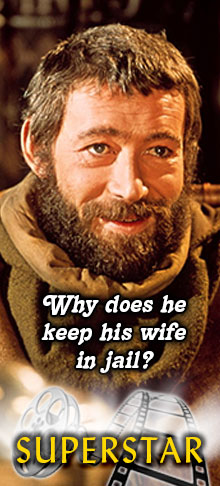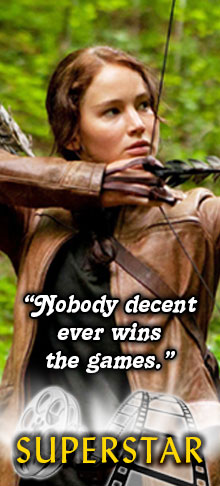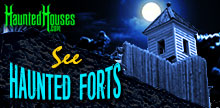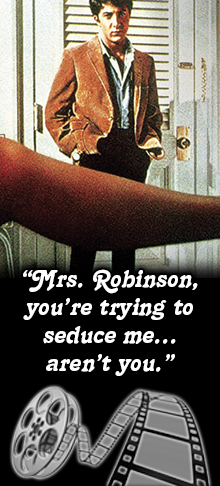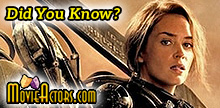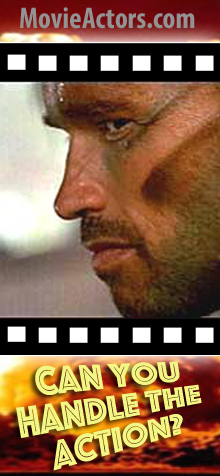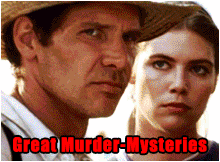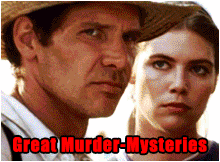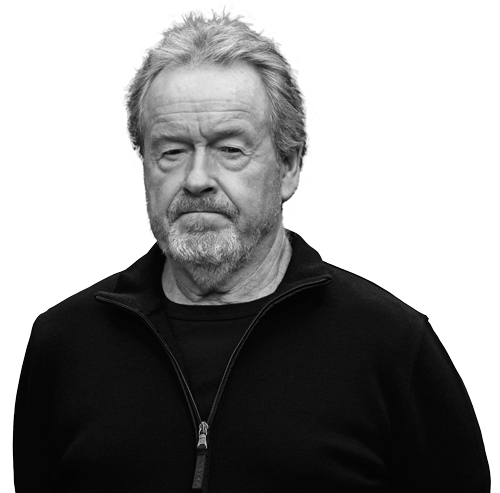
Ridley Scott
Best known for his breakthrough sci-fi horror film Alien (1979), and a string of high-profile cinematic hits which include the neo-noir dystopian science fiction tale Blade Runner (1982), the nervy crime drama Thelma & Louise (1991), the historical drama and Best Picture Oscar winner Gladiator (2000), the war film Black Hawk Down (2001), the sequel to Alien, Prometheus (2012), and The Martian (2015). He is known also for the highly atmospheric visual style of his films.
Sir Ridley Scott was born in South Shields in South Tyneside, North East England, the son of Elizabeth (Williams) and Colonel Francis Percy Scott. He was brought up in an army family, so for most of his early life, his father — an officer in the Royal Engineers — was absent. His older brother, Frank, joined the Merchant Navy when he was still young and the pair had little contact. During this time the family moved around, living in (among other areas) Cumberland, Wales and Germany. He had a younger brother, Tony, who also became a film director. After the Second World War, the Scott family moved back to their native North East, eventually settling on Greens Beck Road in Hartburn, County Durham, whose industrial landscape would later inspire similar scenes in Blade Runner. He studied at Grangefield Grammar School and West Hartlepool College of Art from 1954 to 1958, obtaining a diploma in design.
Scott went on to study at the Royal College of Art in London, contributing to college magazine ARK and helping to establish the college film department. For his final show, he made a black and white short film, Boy and Bicycle, starring both his younger brother and his father. After graduation in 1963, he secured a job as a trainee set designer with the BBC, leading to work on the popular television police series Z-Cars and science fiction series Out of the Unknown. He was originally assigned to design the second Doctor Who serial, The Daleks, which would have entailed realizing the famous alien creatures. However, shortly before Scott was set to start work, a schedule conflict led to his replacement. In 1965, he began directing episodes of TV series for the BBC.
In 1968, Ridley and Tony Scott founded Ridley Scott Associates (RSA), a film and commercial production company. Working alongside Alan Parker, Hugh Hudson and cinematographer Hugh Johnson, Ridley Scott made many commercials at RSA during the 1970s.
Five members of the Scott family are directors, and all have worked for RSA. His brother Tony was a successful film director whose career spanned more than two decades; his sons Jake and Luke are both acclaimed directors of commercials, as is his daughter, Jordan Scott. Jake and Jordan both work from Los Angeles; Luke is based in London. In 1995, Shepperton Studios was purchased by a consortium headed by Ridley and Tony Scott, which extensively renovated the studios while also expanding and improving its grounds.
The Duellists (1977) marked Ridley Scott’s first feature as director. Shot in Europe, it was nominated for the main prize at the Cannes Film Festival, and won an award for best film. It had only limited commercial impact internationally. Set during the Napoleonic Wars, it follows two French Hussar officers, D’Hubert and Feraud (Keith Carradine and Harvey Keitel) whose quarrel over an initially minor incident turns into a bitter extended feud spanning fifteen years, interwoven with the larger conflict that provides its backdrop.
Scott had originally planned next to adapt a version of Tristan and Iseult, but after seeing Star Wars, he became convinced of the potential of large scale, effects-driven films. He accepted the job of directing Alien, the 1979 horror/science-fiction film that would win him international success. Alien’s protagonist, Ellen Ripley (played by Sigourney Weaver), who appeared in the first four Alien films, would become a cinematic icon. The final scene of John Hurt’s character is one of the most memorable in cinematic history. Made at Shepperton Studios in England, Alien was the sixth highest grossing film of 1979, earning over $104 million worldwide.
After a year working on the film adaptation of Dune, and following the sudden death of his brother Frank, Scott signed to direct the film version of Philip K. Dick’s novel Do Androids Dream of Electric Sheep?. Starring Harrison Ford, Blade Runner was a commercial disappointment in 1982, but is now considered a classic. Today, Blade Runner is ranked by many critics as one of the most important and influential science fiction films ever made, partly thanks to its much imitated portraits of a future citiscape. It is often discussed — along with William Gibson’s novel Neuromancer — as signaling the debut of the cyberpunk genre. Scott has described Blade Runner as his “most complete and personal film”.
In 1984 Scott directed a big-budget TV commercial, “1984”, to launch Apple’s Macintosh. It was given a showcase airing during Super Bowl XVIII, alongside screenings in cinemas. The ad is widely considered a “watershed event” in advertising and a “masterpiece”. Advertising Age placed it at the very top of its list of the 50 greatest commercials.
Set in a dystopian future modeled after George Orwell’s Nineteen Eighty-Four, Scott’s advertisement used its heroine (portrayed by English athlete Anya Major) to represent the coming of the Macintosh (indicated by her white tank top adorned with a picture of the Mac) as a means of saving humanity from “conformity” (Big Brother), an allusion to IBM, which at that time was the dominant (pre-Microsoft Windows) force in computing.
In 1985 Scott directed Legend, a fantasy film produced by Arnon Milchan. He decided to create a “once upon a time” tale set in a world of princesses, unicorns and goblins, filming almost entirely inside the studio. Scott cast Tom Cruise as the film’s hero, Jack, Mia Sara as Princess Lili and Tim Curry as the Satan-horned Lord of Darkness. Scott had a forest set built on the 007 Stage at Pinewood Studios in Buckinghamshire, with trees 60 feet high and trunks 30 feet in diameter. In the final stages of filming, the forest set was destroyed by fire. Rob Bottin provided the film’s Academy Award-nominated make-up effects, most notably Curry’s red Satan figure. Though a major commercial failure on release, it has gone on to become a cult classic.
Scott then directed Someone to Watch Over Me, a romantic thriller starring Tom Berenger and Mimi Rogers in 1987, and Black Rain (1989), a police drama starring Michael Douglas and Andy García, shot partially in Japan. Both achieved mild success at the box office. Black Rain was the first of Scott’s six collaborations with composer Hans Zimmer.
Road film Thelma & Louise (1991) with Geena Davis as Thelma and Susan Sarandon as Louise, in addition to the breakthrough role for Brad Pitt as J.D, proved to be one of Scott’s biggest critical hits, helping revive his reputation and earning him his first Oscar nomination for Best Director. His next project, independently-funded historical epic 1492: Conquest of Paradise, was a box office failure. The film recounts the discovery of the Americas by Christopher Columbus (French star Gérard Depardieu). Scott did not release another film for four years.
In 1995, Ridley and brother Tony formed a production company, Scott Free Productions, in Los Angeles. All of Ridley’s subsequent feature films, starting with White Squall and G.I. Jane, have been produced under its auspices.
Scott’s historical drama Gladiator (2000) proved to be one of his biggest critical and commercial successes. It won five Academy Awards, including Best Picture, Best Actor for Russell Crowe, and saw Scott nominated for a Best Director Oscar. The film was named the fifth best action film of all time in the ABC special Best in Film: The Greatest Movies of Our Time. Scott then turned to Hannibal (2001) starring Anthony Hopkins as Hannibal Lecter. The film was commercially successful but got only mixed reviews. Scott’s next film, Black Hawk Down (2001), based on a group of stranded American soldiers fighting for their lives in Somalia, earned him another Best Director Oscar nomination.
In 2003, Scott turned to a smaller scale project, Matchstick Men, adapted from the novel by Eric Garcia and starring Nicolas Cage, Sam Rockwell and Alison Lohman. It received mostly positive reviews, but performed moderately at the box office. In 2005, he made the modestly successful Kingdom of Heaven, a film about the Crusades. The film starred Orlando Bloom, and marked Scott’s first collaboration with the composer Harry Gregson-Williams. The Moroccan government sent the Moroccan cavalry as extras for some battle scenes.
Unhappy with the theatrical version of Kingdom of Heaven (of which he came to believe he’d paid too much attention to preview audience feedback), Scott supervised a director’s cut of the film, the true version of what he wanted, which was released on DVD in 2006. The director’s cut of Kingdom of Heaven has earned critical acclaim. “This is the one that should have gone out” reflected Scott. Asked if he was against previewing in general in 2006, he said: “It depends who’s in the driving seat. If you’ve got a lunatic doing my job, then you need to preview. But a good director should be experienced enough to judge what he thinks is the correct version to go out into the cinema.”
Scott teamed up again with Gladiator star Russell Crowe, for A Good Year, based on the best-selling book by Peter Mayle about an investment banker who finds a new life in Provence. The film was released in November of 2006. A few days later Rupert Murdoch, chairman of studio 20th Century Fox (who backed the film) dismissed the film as “a flop” at a shareholders’ meeting.
Scott’s next film was American Gangster, based on the story of real-life drug kingpin Frank Lucas. Scott took over the project in early 2006, and had screenwriter Steven Zaillian rewrite his script to focus on the dynamic between Frank Lucas and Richie Roberts. Denzel Washington signed on to the project as Lucas, with Russell Crowe co-starring. The film premiered in November 2007 to positive reviews and box office success, and Scott was nominated for a Golden Globe for Best Director.
In late 2008, Scott’s espionage thriller Body of Lies, starring Leonardo DiCaprio and Russell Crowe, opened to lukewarm ticket-sales and mixed reviews. Scott directed a revisionist adaptation of Robin Hood, which starred Russell Crowe as Robin Hood and Cate Blanchett as Maid Marian. It was released in May 2010 to mixed reviews, but a respectable box-office showing.
In July 2009, news surfaced of a two-part prequel to Alien, with Scott attached to direct. The project, ultimately reduced to a single film — Prometheus — which Scott described as sharing “strands of Alien’s DNA” while not being a direct prequel, was released in June 2012. It was visually stunning and received mostly positive reviews, grossing $403 million at the box office. A sequel is now in development for 2017.
Scott directed the biblically-inspired epic film Exodus: Gods and Kings, released in December 2014. It starred Christian Bale in the lead role. In March 2013, Twentieth Century Fox optioned the film rights for the novel The Martian, and hired screenwriter Drew Goddard to adapt and direct the film. In May 2014, it was reported that Scott was in negotiations to direct the adaptation, set to star Matt Damon as Mark Watney. The Martian was released in October of 2015 and was a critical and commercial success, grossing over $630 million worldwide, thereby becoming Scott’s highest-grossing film to date.
Ridley Scott was married to Felicity Heywood from 1964 to 1975. The couple had two sons, Jake and Luke, both of whom work as directors on Scott’s production company, Ridley Scott Associates. Scott later married adv executive Sandy Watson in 1979, with whom he had a daughter, Jordan Scott, and divorced in 1989. His current partner is the actress Giannina Facio, whom he has cast in all his films since White Squall except American Gangster and The Martian. He divides his time between homes in London, France and Los Angeles.
His eldest brother Frank died, aged 45, of skin cancer in 1980. His younger brother Tony died on August 19, 2012, after jumping from the Vincent Thomas Bridge, which spans Los Angeles Harbor, after a long struggle with cancer.
Ridley has dedicated several of his films to memories of his family: Blade Runner to his brother Frank, Black Hawk Down to his mother, and The Counselor and Exodus: Gods and Kings to brother Tony. Ridley also paid tribute to Tony at the 2016 Golden Globes.
Russell Crowe observed, “I like being on Ridley’s set because actors can perform and the focus is on the performers.” Paul M. Sammon, in his book Future Noir: The Making of Blade Runner, said in an interview with that Scott’s relationship with his actors has improved considerably over the years. More recently during the filming of Prometheus, Charlize Theron praised the director’s willingness to listen to suggestions from the cast for improvements in the way their characters are portrayed in the script. Theron worked alongside the writers and Scott to give more depth to her character during filming.
His striking visual style, incorporating a passionately detailed approach to production design and innovative, atmospheric lighting, has been influential on succeeding generations of filmmakers. Scott commonly uses slow pacing until the action sequences. Another technique he employs is use of sound or music to build tension, as heard in Alien, with hissing steam, beeping computers and the noise of the machinery throughout the Nostromo. Scott claims to have an eidetic memory, which he says helps him visualize and storyboard his films.
Scott has developed a method for filming intricate shots as swiftly as possible: “I like working, always, with a minimum of three cameras. So those 50 set-ups might only be 25 set-ups except I’m covering in the set-up. So you’re finished. I mean, if you take a little bit more time to prep on three cameras, or if it’s a big stunt, eleven cameras, and — whilst it may take 45 minutes to set up — then when you’re ready you say ‘Action!’, and you do three takes, two takes and is everybody happy? You say, ‘Yeah, that’s it.’ So you move on.”
Ridley Scott’s directing credits include…
| Year | Movie |
|---|---|
| 1977 | The Duellists |
| 1979 | Alien |
| 1982 | Blade Runner |
| 1985 | Legend |
| 1987 | Someone to Watch Over Me |
| 1989 | Black Rain |
| 1991 | Thelma & Louise |
| 1992 | 1492: Conquest of Paradise |
| 1996 | White Squall |
| 1997 | G.I. Jane |
| 2000 | Gladiator |
| 2001 | Hannibal |
| 2001 | Black Hawk Down |
| 2003 | Matchstick Men |
| 2005 | Kingdom of Heaven |
| 2006 | A Good Year |
| 2007 | American Gangster |
| 2008 | Body of Lies |
| 2010 | Robin Hood |
| 2012 | Prometheus |
| 2013 | The Counselor |
| 2014 | Exodus: Gods and Kings |
| 2015 | The Martian |
| 2017 | Alien: Covenant |
Memorable Quotes by Ridley Scott
[on why his movies don’t have sex scenes] “Sex is boring unless you’re doing it.”
“A friend of mine says, “Art’s like a shark. You’ve got to keep swimming, or else you drown.” Keep bouncing around. People always ask me, “What’s the plan?” There is no plan. I go to what fascinates me next.”
“Audiences are less intrigued, honestly, by battle. They’re more intrigued by human relations. If you’re making a film about the trappings of the period, and you’re forgetting that human relationships are the most engaging part of the storytelling process, then you’re in trouble.”
“We’re suffering from saturation, overkill. The marketplace is flooded by demand, and there are too many films, so everything gets watered down. Demand is the boss and everything bends to that will. Bigger and not necessarily better shows seem to be the order of the day. I can’t watch most of them.”
“The fundamental of anything as a director is material, material, material — script, script, script — once you have the script everything else is straightforward.”
“I’m a yarnteller. My job is to engage you as much as I can and as often as I can. I love the process and still continue to adore the process, actually. I don’t get attached to anything. I’m like a good antique dealer. I’m prepared to sell my most valuable table.”
Things You May Not Know About Ridley Scott
Like his brother Tony Scott, he is an avid smoker of Montecristo Cuban cigars.
He is the most successful British director in Hollywood in terms of box office to date
In 1994, he was slated to direct “Hot Zone” from a screenplay by James V. Hart based on the 1992 New Yorker article “Crisis in the Hot Zone” by Richard Preston. The film was to star Robert Redford and Jodie Foster and was based on the true story of the discovery of the deadly Ebola virus. Various factors, including the development of the similarly-plotted Outbreak (1995), led to the project being canceled.
Suffers from claustrophobia, a condition he actively sought to instill in his Alien (1979) cast by making their Nostromo living quarters as cramped as possible.
His persistent scrutiny of minutiae on the Alien (1979) shoot prompted Sigourney Weaver to complain that he cared more about his props and sets than he did about his cast.
He was awarded Knight Bachelor of the Order of the British Empire in the 2003 Queen’s New Years Honors List for his services to the film Industry.
